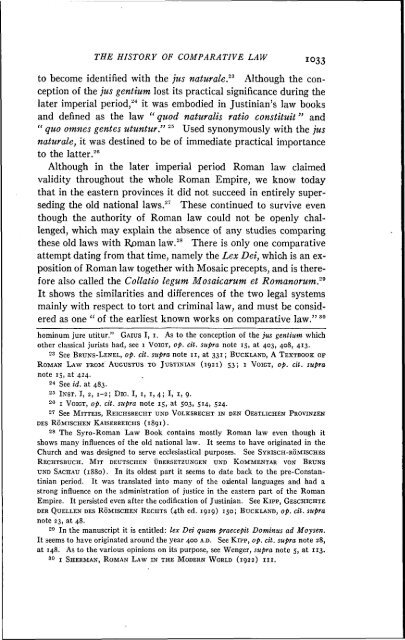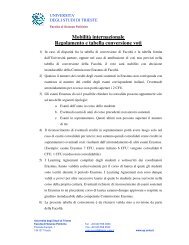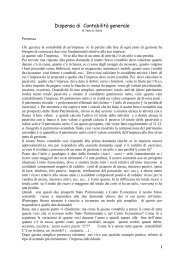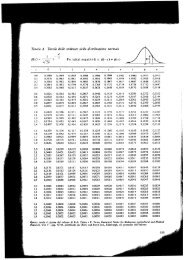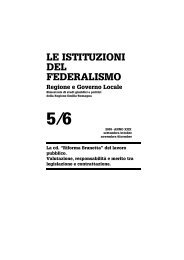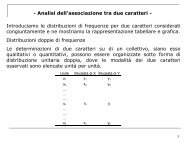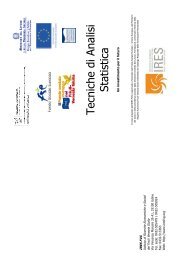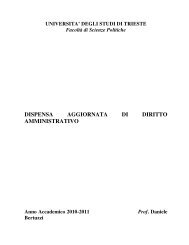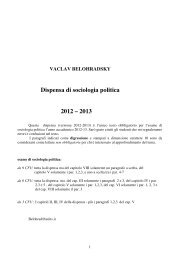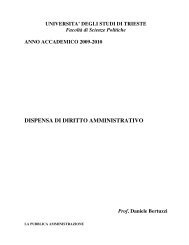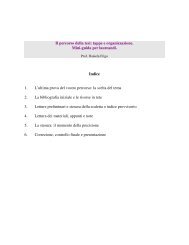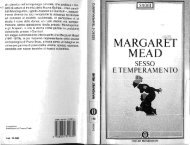THE HISTORY OF COMPARATIVE LAW * ^COMPARATIVE law, as ...
THE HISTORY OF COMPARATIVE LAW * ^COMPARATIVE law, as ...
THE HISTORY OF COMPARATIVE LAW * ^COMPARATIVE law, as ...
You also want an ePaper? Increase the reach of your titles
YUMPU automatically turns print PDFs into web optimized ePapers that Google loves.
<strong>THE</strong> <strong>HISTORY</strong> <strong>OF</strong> <strong>COMPARATIVE</strong> <strong>LAW</strong> 1033<br />
to become identified with the jus naturale.'^^ Although the conception<br />
of the jus gentium lost its practical significance during the<br />
later imperial period,-* it w<strong>as</strong> embodied in Justinian's <strong>law</strong> books<br />
and defined <strong>as</strong> the <strong>law</strong> " quod naturalis ratio constituit" and<br />
" quo omnes gentes utuntur." -' Used synonymously with the jus<br />
naturale, it w<strong>as</strong> destined to be of immediate practical importance<br />
to the latter.'"<br />
Although in the later imperial period Roman <strong>law</strong> claimed<br />
validity throughout the whole Roman Empire, we know today<br />
that in the e<strong>as</strong>tern provinces it did not succeed in entirely superseding<br />
the old national <strong>law</strong>s.'" These continued to survive even<br />
though the authority of Roman <strong>law</strong> could not be openly challenged,<br />
which may explain the absence of any studies comparing<br />
these old <strong>law</strong>s with Rpman <strong>law</strong>.^^ There is only one comparative<br />
attempt dating from that time, namely the Lex Dei, whicJi is an exposition<br />
of Roman <strong>law</strong> together with Mosaic precepts, and is therefore<br />
also called the Collatio legum Mosaicarum et Romanorum.^^<br />
It shows the similarities and differences of the two legal systems<br />
mainly with respect to tort and criminal <strong>law</strong>, and must be considered<br />
<strong>as</strong> one " of the earliest known works on comparative <strong>law</strong>." ^°<br />
hominum jure utitur." GAIUS I, I. AS to the conception of the jus gentium which<br />
other cl<strong>as</strong>sical jurists had, see i VOIGT, op. cit. supra note 15, at 403, 408, 413.<br />
-3 See BRUNS-LENEL, op. cit. supra note 11, at 331; BUCKLAND, A TEXTBOOK <strong>OF</strong><br />
ROMAN <strong>LAW</strong> FROM AUGUSTUS TO JUSTINIAN (1921) 53; i VOIGT, op. cit. supra<br />
note IS, at 424.<br />
2* See id. at 483.<br />
-'-' INST. I, 2, 1-2; DIG. I, 1, i, 4; I, i, 9.<br />
20 I VOIGT, op. cit. supra note 15, at 503, 514, 524.<br />
2^ See MiTTEis, REICHSRECHT UND VOLKSRECHT IN DEN OESTLIGHEN PROVINZEN<br />
DES ROMISCHEN KAISERREICHS (1891).<br />
28 The Syro-Roman Law Book contains mostly Roman <strong>law</strong> even though it<br />
shows many influences of the old national <strong>law</strong>. It seems to have originated in the<br />
Church and w<strong>as</strong> designed to serve ecclesi<strong>as</strong>tical purposes. See SYRISCH-ROMISGHES<br />
RECHTSBUCH. MIT DEUTSCHEN UBERSETZUNGEN UND KOMMENTAR VON BRUNS<br />
UND SACHAU (1880). In its oldest part it seems to date back to the pre-Constantinian<br />
period. It w<strong>as</strong> translated into many of the oriental languages and had a<br />
strong influence on the administration of justice in the e<strong>as</strong>tern part of the Roman<br />
Empire. It persisted even after the codification of Justinian. See KIPP, GESCHICHTE<br />
DER QuELLEN DES RoMiscHEN RECHTS (4th ed. 1919) iso; BuGKLAND, Op. cit. supra<br />
note 23, at 48.<br />
2° In the manuscript it is entitled: lex Dei quam praecepit Dominus ad Moysen.<br />
It seems to have originated around the year 400 A.D. See KIPP, op. cit. supra note 28,<br />
at 148. As to the various opinions on its purpose, see Wenger, supra note Si at II3-<br />
2° I SHERMAN, ROMAN <strong>LAW</strong> IN <strong>THE</strong> MODERN WORLD (1922) iii.


